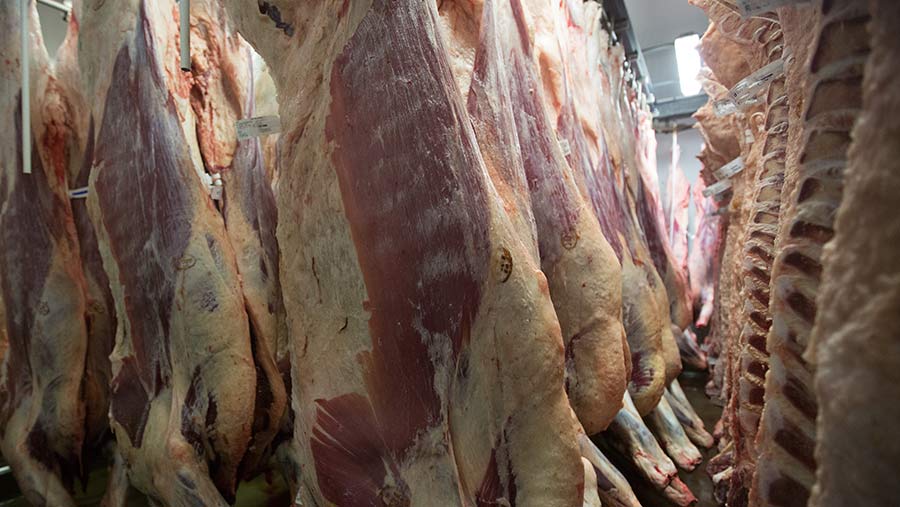US acts to increase competition in meat-processing sector
 © Tim Scrivener
© Tim Scrivener The US government is spending more than $220m (£192m) on projects designed to expand meat and poultry processing capacity, to make the meat supply chain fairer for farmers and consumers.
The move has been described as interesting by the NFU, which said it would support a similar initiative in the UK.
The announcement in the US follows concerns expressed by president Joe Biden that there are currently four big corporations controlling more than half of the beef, pork and poultry markets.
See also: US government investigates abuse of power in meat sector
It is estimated that on average just 14 cents of every food dollar spent by consumers goes to US producers, in large part because of consolidation within the supply chain.
The US Department of Agriculture has allocated the money for meat and poultry processing through a series of grants and loans and indicated more funding was on the way.
Tom Vilsack, secretary of agriculture, said: “By jumpstarting independent processing projects and increasing processing capacity, these investments create more opportunities for farmers and ranchers to get a fair price, while strengthening supply chains, delivering more food produced closer to home for families, expanding economic opportunity and creating jobs in rural America.”
The department for agriculture has allocated some of the money to provide direct support to existing independent meat processing plants that want to increase capacity.
It is also working with lenders to guarantee loans for companies looking to finance the start-up or expansion of meat and poultry plants.
UK viewpoint
John Royle, NFU chief livestock adviser, said: “This is very interesting, and we would support a similar initiative in the UK.
“The key point here is pump-priming financing for independent processing plant projects that fill a demonstrated need for more diversified processing capacity.”
Following consolidation of the processing sector in the UK over the past two decades, there was now a growing issue of access to the small and medium-sized abattoirs that enabled many farmers to add value through direct selling to the consumer, or through other small-scale marketing initiatives such as farm shops or boxed meat businesses, said Mr Royle.
“Retaining a range of options to capitalise on the willingness of many consumers to buy from local, independent businesses is extremely important.”
Mr Royle added there was an industry small abattoir group that had made a number of recommendations, one of which was access to grants and support from government schemes.
“Government support would be welcome, although small abattoir closures are triggered for a variety of reasons linked to profitability, location, regulatory burden and access to labour,” he added.
Local food
Earlier this year, the US government set out a plan to transform the nation’s food system.
It said supply chain disruptions highlighted by Russia’s invasion of Ukraine and the Covid-19 pandemic had revealed the perils of a national food system that depends on capacity concentrated in a few geographic areas and requires many steps to get from farm to fork.
In order to be more resilient, the food system of the future needs to be more distributed and local, it said.
